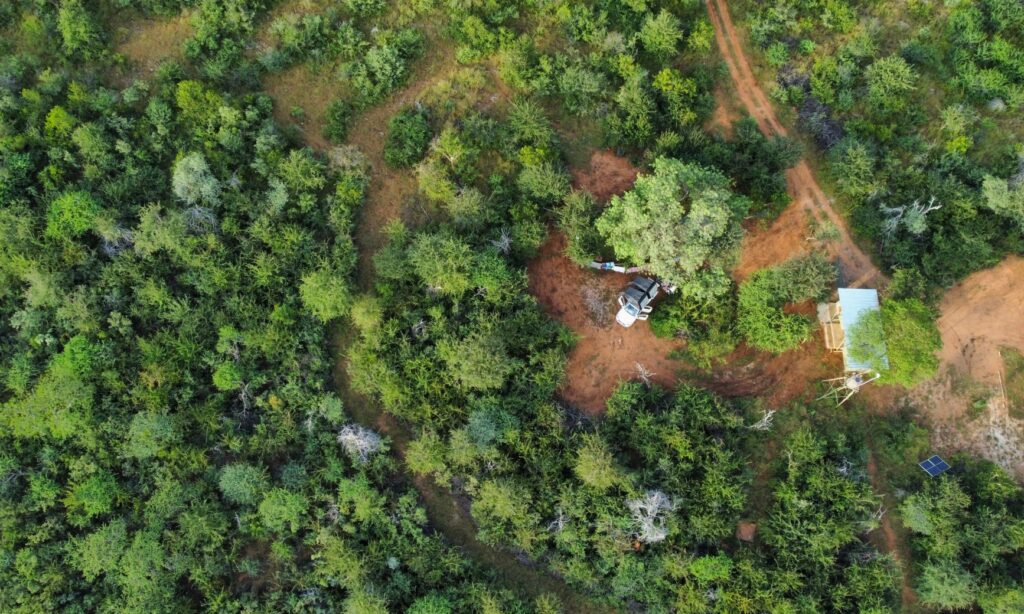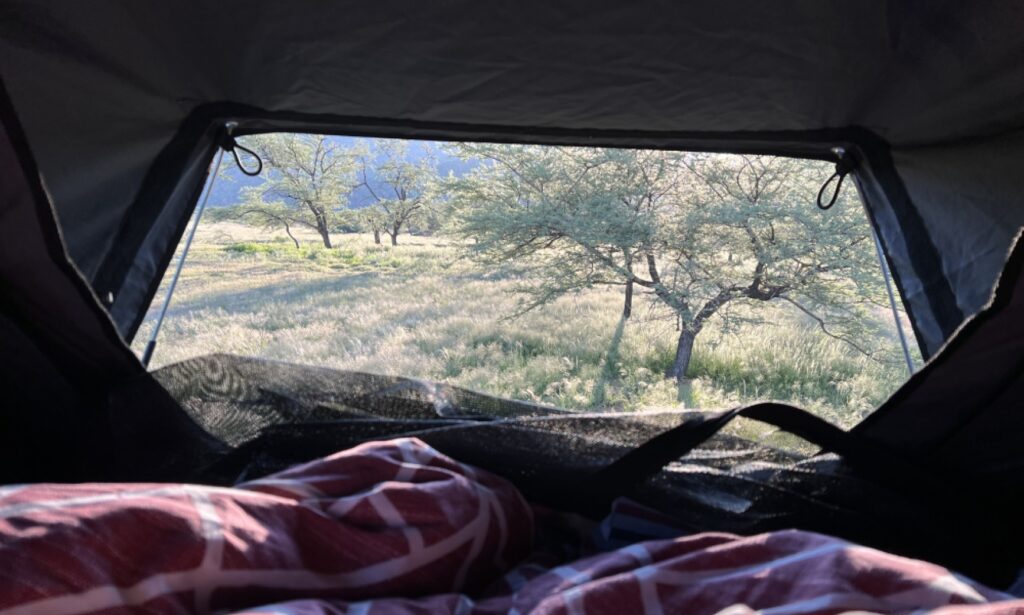Namibia is famous for its vast, empty landscapes, star-studded skies, and the exhilarating sense of freedom that comes with being far from the crowds. It’s no surprise that some adventurous travellers consider wild camping — sleeping outside of designated campsites, in remote, undeveloped areas with no facilities. It’s about going completely off-grid, relying on your vehicle, your gear, and your judgment. The appeal? Total solitude, a deep connection with nature, and waking up somewhere truly wild.
But while the idea is romantic, the reality is more complex. We do not recommend wild camping unless you have local knowledge and are travelling with at least two vehicles. Here’s why.
It might look like you’re in the middle of nowhere — but chances are, you’re not. Namibia’s land is almost always either part of a nature reserve, private farmland, or communal land.
-
In nature reserves, camping is strictly regulated and allowed only in designated campsites. This is to protect both the environment and the wildlife — and also to keep you safe.
-
On private farmland, the land belongs to someone. Wild camping here without permission is trespassing. You must always get the landowner’s approval before staying the night.
-
In communal areas, you’re often close to a village, even if you don’t see one right away. These lands are overseen by local communities and traditional authorities. Out of respect (and legality), you need to ask the local chief or community leaders for permission before camping.
If your main goal is to get away from it all and experience the silence and vastness of Namibia, the good news is: you can absolutely still do that — in official campsites.
Namibia, Botswana and South Africa is dotted with an incredible range of well-spaced, peaceful campsites, many located on private farms or in conservancies. In fact, most of them are designed specifically to give you that “middle-of-nowhere” feeling:
-
Many campsites are widely dispersed, so you often won’t see or hear your neighbour at all.
-
Many offer private ablutions, shaded areas, and stunning views — without compromising the sense of isolation.
-
Almost all are run by environmentally- and socially-conscious people who support local communities and surroundings. Meaning your stay directly affects local job opportunities and supports nature conservation, sustainable tourism and rural development.
If you are travelling with people who have sufficient local knowledge and are a group of vehicles, feel free to leave behind the comfort of infrastructures such as proper ablutions and immerse yourself in the wild. But keep the following in mind:
Namibia rewards those who seek freedom and adventure — but it’s a place that demands respect for its land, people, and nature. Wild camping might sound like the ultimate experience, but in most cases, you can have all the beauty and solitude you’re dreaming of without taking unnecessary risks or breaking the law.
So choose your campsites carefully, support local communities and conservation efforts, travel responsibly, and you’ll still get that unbeatable feeling of sleeping under the stars, with no one else around for miles — except maybe a jackal calling in the distance.


